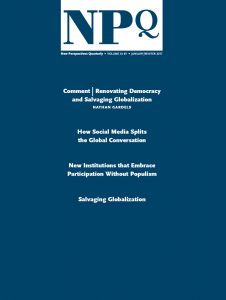the prosumer and intimate profit
 Recently, this blog has focused on the labor of the crowds. I have posted that the “prosumers of the world should unite” and have continued to write on the topic. Bmckernan expertly handled the topic when discussing “light” capitalism and more recently pj.rey convincingly demonstrated that prosumption is a structural force at play in the death of old media. This post is driven by the recent announcement that Facebook, now nearly the size of the United States, has become profitable (or “cash flow positive“). This re-ignites the debate around companies profiting from increasingly personal and intimate information about ourselves and our lives.
Recently, this blog has focused on the labor of the crowds. I have posted that the “prosumers of the world should unite” and have continued to write on the topic. Bmckernan expertly handled the topic when discussing “light” capitalism and more recently pj.rey convincingly demonstrated that prosumption is a structural force at play in the death of old media. This post is driven by the recent announcement that Facebook, now nearly the size of the United States, has become profitable (or “cash flow positive“). This re-ignites the debate around companies profiting from increasingly personal and intimate information about ourselves and our lives.
As prosumers on Facebook (that is, we both produce and consume the content on the site), we display ourselves and our socializing with others, and it is precisely this data, this digital goldmine, that Facebook leverages for profit. Another trend of intimate data being shared has to do with “geotagging” and “location awareness” tools.
Location awerness simply refers to tools -often utilizing “smart” mobile phones that are GPS-enabled and always in our pockets- that track and display one’s geographic location. The Loopt iPhone app does just this by keeping track of where the user is and helping them share the information with others. Yahoo has the Fire Eagle service, Google has Google Latitude, and Twitter has also begun to “geotag” tweets with their geographical location. Given these technologies, we can share our past and current geographical locations with ourselves and others by plotting them on maps, posting them as our Facebook or Twitter statuses and so on.
In these examples, we see that the very titans of Web 2.0 capitalism are set to profit (or at least try to) from another intimate source of data: where one is physically located at any given moment. The degree to which these tools become ubiquitous is the degree to which our very lives become a source of ‘intimate profit’. To this point, and I’ll leave with a question to tackle in a later post: does it matter that companies profit from increasingly intimate user-data regarding their self/their socializing/their very location if users find these tools useful? ~nathan
![]() Facebook Makes Money, Tops 300 Million Users
Facebook Makes Money, Tops 300 Million Users
![]() The Intersecting Roles of Consumer and Producer: A Critical Perspective on Co-production, Co-creation and Prosumption
The Intersecting Roles of Consumer and Producer: A Critical Perspective on Co-production, Co-creation and Prosumption
Add to: Facebook | Digg | Del.icio.us | Stumbleupon | Reddit | Blinklist | Twitter | Technorati | Furl | Newsvine




1756-2589/asset/NCFR_RGB_small_file.jpg?v=1&s=0570a4c814cd63cfaec3c1e57a93f3eed5886c15)

A lower tech version of intimate profit comes in the form of the “frequent shopper” cards that people accumulate on their key chains. These cards give the user a discount and the store detailed data about individual consumption patterns. The lines of privacy are being re-shaped, it would appear, by expanding (and reconfiguring) capitalism.
Keri